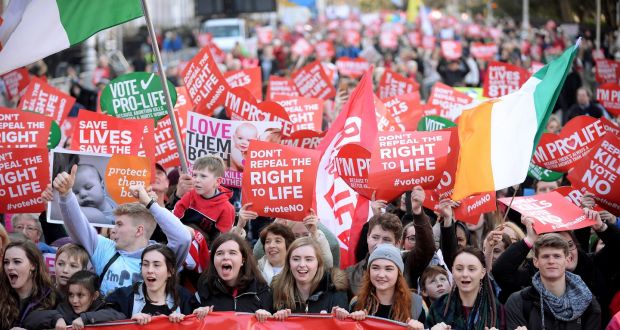Human rights need Christian foundations, writes David Quinn
This month marks the 70th anniversary of the passage of the United Nations Universal Declaration of Human Rights, the key human rights document of our time.
This document is quoted across the political spectrum to this day. It is used and misused to advance various human rights objectives. Critics of the Church often quote ‘human rights’ to argue against Christian teachings on issues like abortion, but in fact the Catholic influence on the Declaration was very strong, coming in particular through Jacques Maritain, a Catholic French philosopher and political thinker who was the main proponent in his time of natural law and the philosophy of Thomas Aquinas.
In a way, this was historically unexpected because the Church had declared itself against the Rights of Man at the time of the French Revolution. It did this because the Church had become too strongly allied to the monarchies of Europe and saw them as protectors of the Church and the Christian order. It saw the French Revolution as its deadly enemy and, in fact, the Church was savagely attacked and countless numbers of Catholics were killed in the name of the Revolution.
Development
However, at a deeper level, the Rights of Man originate in the Christian doctrine that we are all created morally equal. Modern theories of human rights, which arose in Europe, did not come from nothing.
They were part of a very long process of development in which Christianity played the absolutely indispensable role, even if the Church as an historical entity stood in opposition to the rise of modernity for reasons just explained.
The very first article of the Universal Declaration of Human Rights (UDHR) reads as follows: “All human beings are born free and equal in dignity and rights.”
This seems completely obvious to us today, but it is only obvious because we have become accustomed to thinking about ourselves as human beings in a certain way over a very long time. Why should we think we are “born free”? Why do we think we are “equal”? Where does the notion of “dignity” come from, or the idea of “rights”?
It is clear, for example, that we are not all “born free”. Some of us can easily and legally be killed while still in the womb.
Why do we desire equality? Why do we think we are “equal in dignity and rights”? If the atheists are correct, then all of us are ultimately evolved from nothing, and you cannot get rights from nothing. There is no higher being that gives us a moral law that is binding on all us.
An atheist might say it is desirable to treat another person as your equal because then they might treat you as their equal, but this is a utilitarian approach to things. It frames our relationships in terms of what you can get out of them. It turns our relationships into a sort of contract.
Christianity, on the other hand, says you should treat someone equally simply because they are a human being, even if you get nothing in return. Christianity says you should do this because we are all made in the image and likeness of God.
This is why Jesus is so insistent that when we feed the hungry, clothe the naked, visit the prisoners, care for the sick, you are doing so to him as well because he is in every one of us. This gives us infinite dignity no matter lowly our station in life is in practice.
As Pope Francis said last Monday, the exact anniversary of the signing of the UDHR: “Every human person, created in God’s image and likeness, is a value unto themselves and is subject to inalienable rights.”
It was this kind of thinking that Fr Maritain brought to bear as the UNDR was being prepared in the immediate aftermath of the most savage war in human history, the Second World War.
The UDHR owes a huge debt to Christian and Catholic natural law theory because the idea of natural rights emerges from natural law, which is to say, from the idea that there is a higher law outside of us that is binding on us and to which all states as well as all peoples are subject.
Perhaps this is why even the likes of Jurgen Habermas, one of most influential philosophers alive today, and not himself a religious believer, has admitted: “Universalistic egalitarianism, from which sprang the ideals of freedom and a collective life in solidarity, the autonomous conduct of life and emancipation, the individual morality of conscience, human rights and democracy, is the direct legacy of the Judaic ethic of justice and the Christian ethic of love.”
An editorial in the traditionally anti-clerical Guardian newspaper a couple of years ago worried about what would happen to human rights in a thoroughly post-Christian world.
It said: “The idea that people have some rights just because they are human, and entirely irrespective of merit, certainly isn’t derived from observation of the world. It arose out of Christianity, no matter how much Christians have in practice resisted it.
“Although human rights have become embedded in our institutions at the same time as religious observance has been in decline, they could become vulnerable in an entirely post-Christian environment where the collective memory slips from the old moorings inherited from Christian ethics.”
This is exactly correct and it is why we cannot take the Universal Declaration of Human Rights for granted. It is not simply that human rights are being violated every day.
It is that the very basis of human rights is under threat because their Christian basis is under such attack. If we abolish the Christian view that we are all created morally equal, then human rights stand on a very shaky foundation indeed.


 David Quinn
David Quinn
